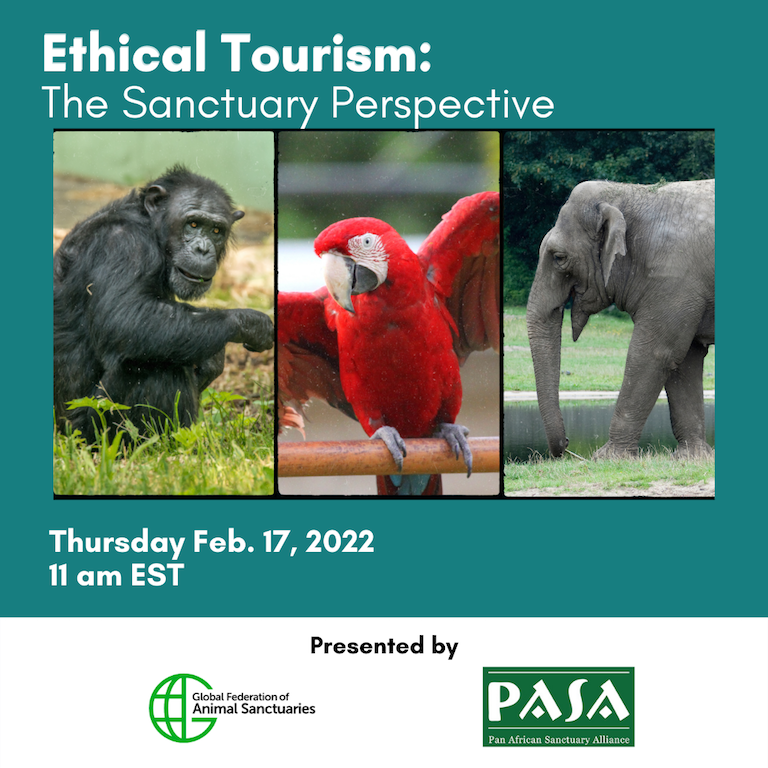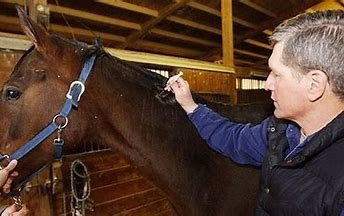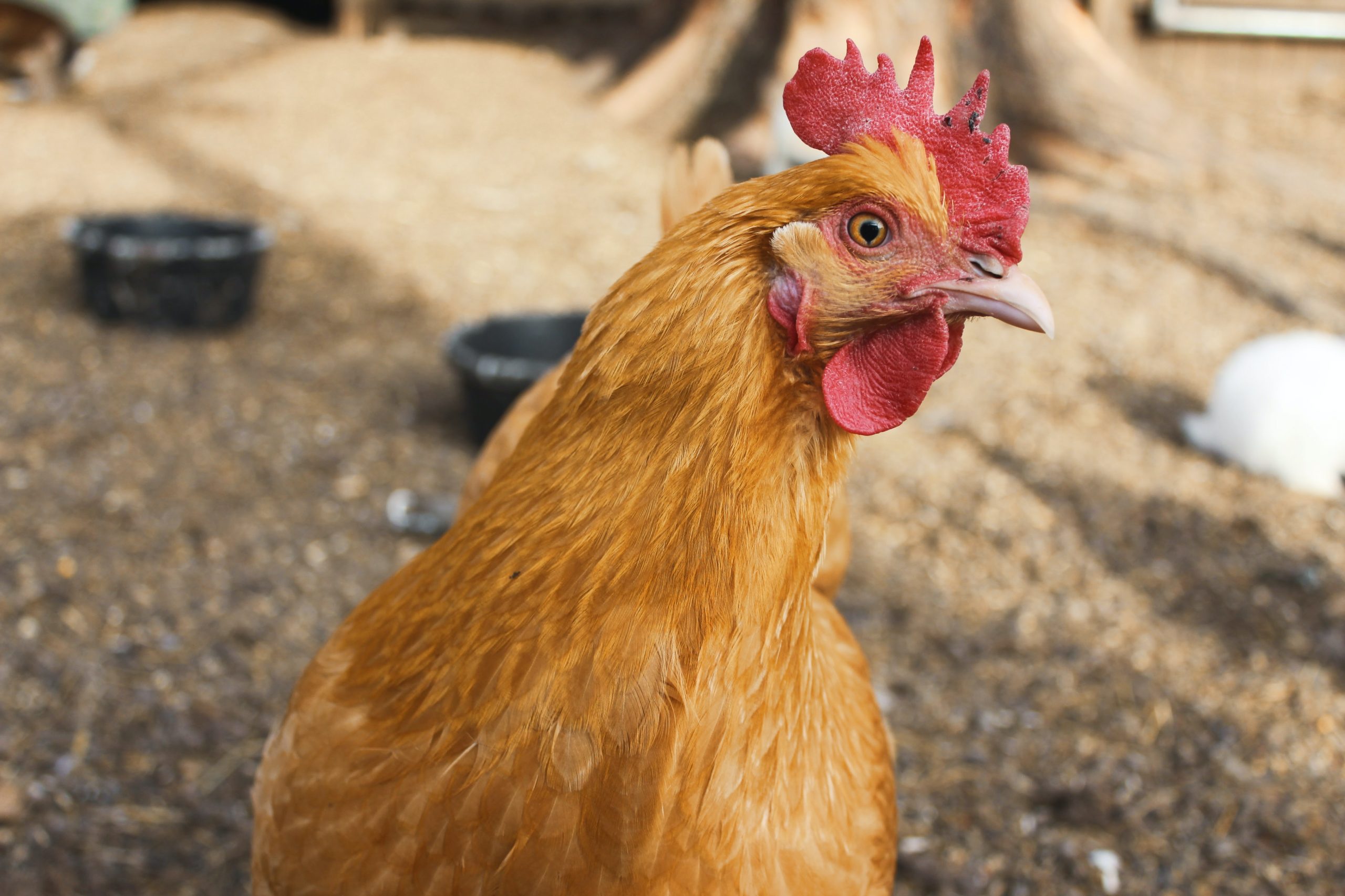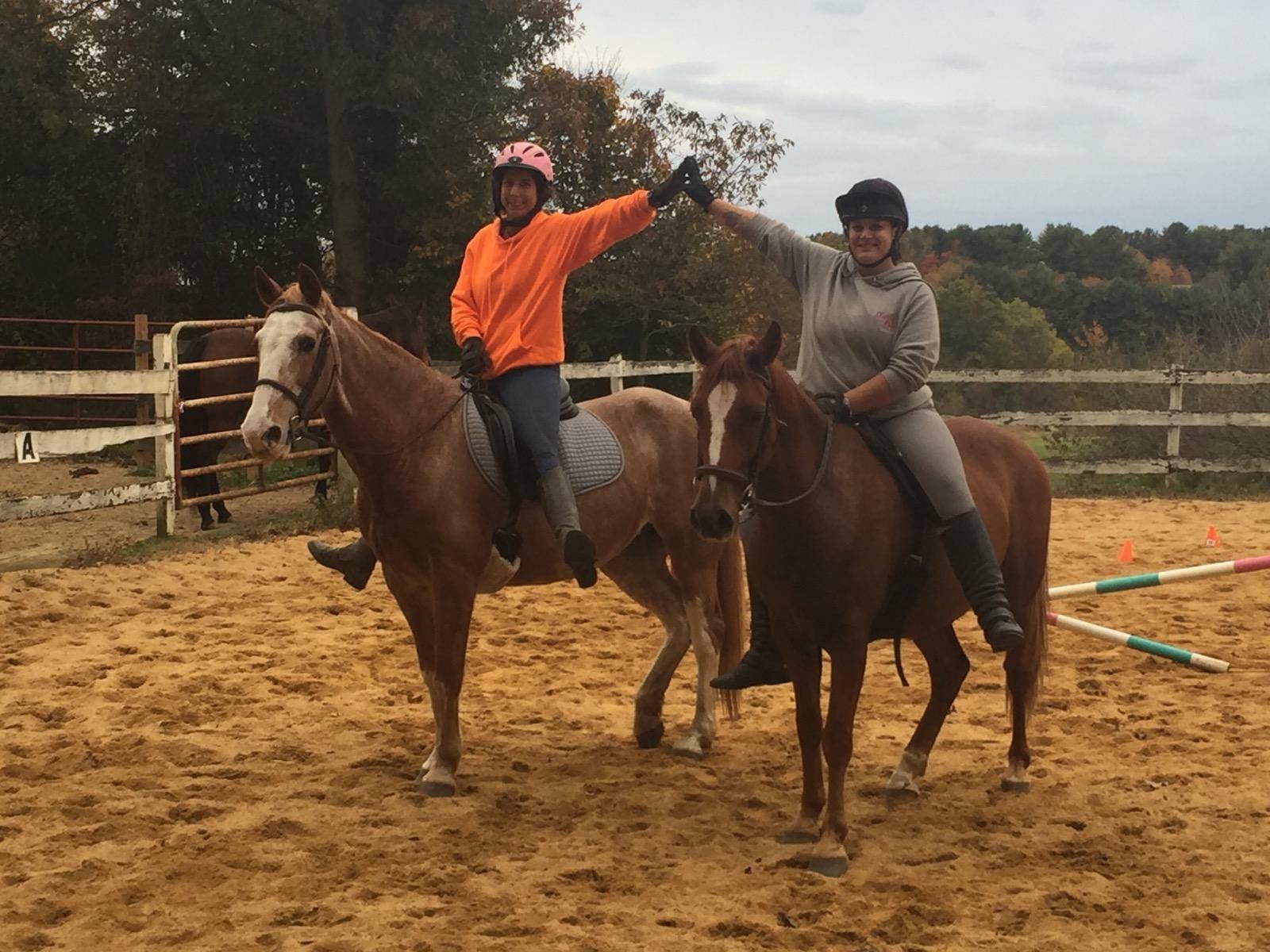February 17th Webinar on Ethical Animal Tourism
 Join us for our first webinar of 2022! As we think about the possibility of travel again, it’s a perfect time to discuss what ethical animal tourism means and the impact that it can have. True sanctuaries will offer opportunities in which animal welfare is the top priority and that do not exploit animals through “pay to play” or other activities.
Join us for our first webinar of 2022! As we think about the possibility of travel again, it’s a perfect time to discuss what ethical animal tourism means and the impact that it can have. True sanctuaries will offer opportunities in which animal welfare is the top priority and that do not exploit animals through “pay to play” or other activities.
We are thrilled to present this webinar jointly with our colleagues at the Pan African Sanctuary Alliance (PASA). Our speakers will include Kareen Zabow, Ecotourism Manager at PASA member Tacaguma Chimpanzee Sanctuary in Sierra Leone; Anna Bryant, Biology Coordinator and Volunteer Manager at GFAS accredited ARCAS Wildlife Rescue and Rehabilitation Center in Guatemala; Tiffany James, animal caregiver at Zoo Knoxville who has volunteered at several PASA sanctuaries; and Daniel Turner, Co- Founder and Director of ANIMONDIAL, who works closely with the travel and tourism industry to develop animal-friendly guidelines and promote responsible animal tourism options.
The webinar is on Thursday, February 17th at 11 am EST and we hope you will join us! Registration is open to the public, so please feel free to share this information with anyone who might be interested. Register at the following link:
https://zoom.us/webinar/register/WN_JUGU9IKOQoKM1-nxTJ_edg
We will also record the webinar for later viewing by those who are unable to join the live session.
GFAS Joins World Federation for Animals
GFAS is proud to announce our associate membership in World Federation for Animals; membership will further help us to fulfill our mission.
The purpose of the World Federation for Animals (WFA) is to unite the animal protection movement by sharing information and developing focus on key policy issues impacting animals, regionally, internationally, and at the UN level. GFAS is a long-standing champion of collaborations with like-minded groups to exchange information and improve the welfare of animals in need. Adding World Federation for Animals membership is intended to help GFAS move forward strategic priorities in the areas of awareness and advocacy – promoting the work and space of true sanctuaries, addressing root causes and reasons why animals are in sanctuary care or captivity, and promoting how sanctuaries themselves are vital to advocacy efforts.
We are honored to join the World Federation for Animals and look forward to contributing to the achievement of global impact for animals. To learn more, visit the WFA website https://wfa.org/ or follow on social media https://www.facebook.com/WorldFederationforAnimals
Sanctuary Support: Unique Opportunities for Sanctuaries This Month
 We know sanctuaries could always use a little extra help. Whether it’s that huge medical bill or that tech problem you just can’t get to – we’ve got you covered. Here are a few cool support programs you can apply for today.
We know sanctuaries could always use a little extra help. Whether it’s that huge medical bill or that tech problem you just can’t get to – we’ve got you covered. Here are a few cool support programs you can apply for today.
Tech to the Rescue
Less suffering for animals equals a more sustainable world for humans. If you are a nonprofit organization that has saving animals at your heart’s core, let us match you with an IT company and increase your impact with a technological solution. There are many ways technology can support running your organization on an everyday basis.
Deadline: February 27,2022
Fee: Pro Bono
Apply here: Submit Project
Esther Shares Medical Fund (Farmed Animal Sanctuaries only)
The Esther Shares Medical Fund has been set up to provide financial assistance to farmed animal sanctuaries in Canada and the United States that find themselves in need due to sudden or unforeseen medical expenses.
Learn more & apply here: https://www.happilyeveresther.ca/how-it-works
Other Animal Welfare Funders
Learn more at: https://www.aspcapro.org/grants/other-animal-welfare-funders
Add Microchipping to Your Equine Adoption Safety Net (and Other Animals)
Providing a lifetime safety net for your equine adoption candidates is essential and microchipping can be a valuable addition. Microchips provide positive identification of equines found in at-risk situations such as low-end auctions, abandonment, law enforcement agency seizures, or simply lost. Microchipping can also be a valuable tool in everyone’s disaster preparedness plan whether you are an equine sanctuary/rescue organization or for the individual adopter/ horse owner. Microchipping a horse is easy, quick, inexpensive, essentially pain-free, but most important, effective. With proper and current registration, adoption centers and prior registered owners can be notified of a recovered equine and provide an extra safety net for the horse. Some registration databases also link directly to an equine’s medical record. The only information contained on the microchip is the chip number, but it is this number that can lead back to a database.
GFAS Adoption Standard P-1 emphasizes the importance of a safety net.
Equine adoptions are accompanied by appropriate legal documents that specify the transfer of ownership within an agreed time frame, and provide a lifetime safety net for the equine, and ensure humane and responsible care
While microchipping of companion animals (dogs and cats) has been well accepted for many years, microchipping equines has been slow to evolve. Much of that had to do with technology but also myths. Today, microchipping is so safe and reliable that it is a requirement or best practice for many organizations. Since January 2017, the Jockey Club requires all Thoroughbred foals to be microchipped. The ASPCA/Right Horse Partner organizations are required to microchip their equines, and all equines participating in breed and sport associations must to be microchipped. (https://equinemicrochiplookup.org/).
Today’s microchips are no larger than a grain of rice and are implanted with a minimally invasive procedure. Microchips are inserted by a veterinarian into the horse’s nuchal ligament with a fine needle. It is a quick procedure, and most horses barely feel it.
How Microchips Work
 Microchips operate using radio wave frequency that can’t be altered. The number is encoded into the chip when it is manufactured. Scanners that are used to read microchips for a dog or cat can be used for equines. In a recent article in Horse Illustrated Nov/Dec 2021, Jean Anne Mayhall, president of Microchip ID Systems explained that the 15-digit universal chip also know as the ISO chip, is recommended for equines. The ISO chip operates at 134.2 kHz, can be read by a universal scanner, and is recognized worldwide.
Microchips operate using radio wave frequency that can’t be altered. The number is encoded into the chip when it is manufactured. Scanners that are used to read microchips for a dog or cat can be used for equines. In a recent article in Horse Illustrated Nov/Dec 2021, Jean Anne Mayhall, president of Microchip ID Systems explained that the 15-digit universal chip also know as the ISO chip, is recommended for equines. The ISO chip operates at 134.2 kHz, can be read by a universal scanner, and is recognized worldwide.
Contrary to some beliefs, magnets will not deactivate the chip; it does not cause cancer; the mini microchip will not migrate if implanted in the nuchal ligament; and it is very difficult to remove once implanted likely requiring anesthesia and invasive surgery. The chip is not a GPS tracking device. Unlike GPS, microchips don’t require batteries and are inactive until receiving a signal from a compatible microchip reader. A microchip can be scanned an infinite number of times and will last the lifetime of the horse.
Database Registration
 Microchips only provide an animal’s unique and permanent identification number. To do its job, the horse and the microchip number must be registered with one or more database services.
Microchips only provide an animal’s unique and permanent identification number. To do its job, the horse and the microchip number must be registered with one or more database services.
ASPCA works with Microchip ID Equine to provide this service. Home • Microchips for Horses | Equine Protection Registry (microchipidequine.com). Their Equine Protection Registry also includes a feature called “LifeTrac” safety net which allows adoption partners to stay connected to their horses even after their adoption. Mayhall explained that rescue organizations can simply request to be ‘flagged’ into their LifeTrac program. There is no charge for this service and all chips will be tracked back to the rescue organization.
In 2018, the American Horse Council designed and launched the HorseLookup.org Home | American Horse Council Microchip Look-Up (horselookup.org). This is a search engine that can be used by anyone to locate the registry, organization, or chip company that holds current information on a microchipped horse. When a chip number is entered, users are directed to the entity chosen by the owner, where information is stored about that horse. The tool also includes the LifeTrac safety net database. So HorseLookup.org not only reunites lost horses with owners, but also flags a horse that is part of a safety net program. The safety net program lists all of the people/organizations that are willing to step in if the horse is found in an at-risk situation. The United Horse Coalition offers free microchips and registration at the following link, Microchipping – United Horse Coalition
Millions of equines around the world are microchipped. Some states such as Louisiana, are even requiring it. It is a reliable and safe tool to add to your safety net program. However, the most important step in the process is registering all microchipped equines and to keep that information current.
Update for Farmed Animal Sanctuaries on HPAI (Highly Pathogenic Avian Influenza) 2022
 As of the start of 2022 the USDA confirmed cases of HPAI in wild birds in the southeast U.S., including South Carolina and North Carolina, which poses a serious infectious disease threat to bird residents in sanctuaries. Canada and the UK have also confirmed cases of the virus. HPAI is a highly contagious form of avian influenza with a high mortality rate for domesticated bird species, including chickens, turkeys, and ducks. Sanctuaries in the affected regions are already taking additional biosecurity measures and limiting intakes to protect their residents. Below, we provide two critical resources on the virus: one presenting current USDA statistics on where the virus has been identified and a second on how to identify the virus and protect your residents from it no matter where your sanctuary operates. Please note that in most regions affected HPAI is a reportable disease.
As of the start of 2022 the USDA confirmed cases of HPAI in wild birds in the southeast U.S., including South Carolina and North Carolina, which poses a serious infectious disease threat to bird residents in sanctuaries. Canada and the UK have also confirmed cases of the virus. HPAI is a highly contagious form of avian influenza with a high mortality rate for domesticated bird species, including chickens, turkeys, and ducks. Sanctuaries in the affected regions are already taking additional biosecurity measures and limiting intakes to protect their residents. Below, we provide two critical resources on the virus: one presenting current USDA statistics on where the virus has been identified and a second on how to identify the virus and protect your residents from it no matter where your sanctuary operates. Please note that in most regions affected HPAI is a reportable disease.
USDA Stats
HPAI Identification and Biosecurity from Open Sanctuary Project
Highlighting GFAS Verified Gaited Advocates Intervention Team (G.A.I.T) in Maryland
 Gaited horse breeds come in all colors and sizes, but their unique four-beat gait means one hoof is always on the ground giving these horses more stamina and endurance as well as comfort for the rider. One such breed, Tennessee Walking Horses, are known for their incredible natural gait but are also the subject of a horrific practice called soring. Soring is intended to amplify the gait but causes the horse incredible pain. Horses that fail to impress in the show ring are at risk of being sold at low end auctions, potentially becoming victims of the horse meat industry. Tennessee Walking Horses are not the only gaited equines at risk. This risk also exists for Saddlebreds, Standardbreds, Paso Finos, Appaloosas, Morgans, Rocky Mountain horses, Icelandic horses and others. The demand for show quality gaited horses continues to grow.
Gaited horse breeds come in all colors and sizes, but their unique four-beat gait means one hoof is always on the ground giving these horses more stamina and endurance as well as comfort for the rider. One such breed, Tennessee Walking Horses, are known for their incredible natural gait but are also the subject of a horrific practice called soring. Soring is intended to amplify the gait but causes the horse incredible pain. Horses that fail to impress in the show ring are at risk of being sold at low end auctions, potentially becoming victims of the horse meat industry. Tennessee Walking Horses are not the only gaited equines at risk. This risk also exists for Saddlebreds, Standardbreds, Paso Finos, Appaloosas, Morgans, Rocky Mountain horses, Icelandic horses and others. The demand for show quality gaited horses continues to grow.
GFAS Verified G.A.I.T. in Maryland was founded in 2016 by a group of gaited horse enthusiasts determined to help these special breeds. The officers and volunteers of G.A.I.T. are SOUND advocates. SOUND advocates promote flat shod or barefoot training and never use artificial means such as soring, stacks, or chains that modify a horse’s natural gaits. Promoting good welfare, mental and physical for all equines is the core of this program.
G.A.I.T. does not have a central location but houses horses with members of their team who provide needed rehabilitation and training. New intakes come to GAIT through a variety of avenues including owner surrender, law enforcement seizure/relinquishment, transfers from other rescue organizations, and purchase at auction where horses are at risk of slaughter. Each horse is evaluated to determine its skills and temperament so that the best home can be found. GAIT also works with other area rescues to help provide a network for any gaited horses that come through these groups. Team members also advise equine owners in their community how best to improve the care they are providing for their horse and hopefully keeping horses in their homes and out of auctions.
To learn more, please visit http://www.gaitrrr.org/.
ARCAS: A Gem in Guatemala
 The only GFAS Accredited organization in Guatemala and one of the most outstanding rescue and rehabilitation centers in all of Central America, Asociación de Rescate y Conservación de la Vida Silvestre (ARCAS) was established in 1989 by Guatemalan citizens alarmed at the decline in wildlife populations from rampant trafficking. Under a cooperative agreement with the Guatemalan government, ARCAS is recognized as the official destination for all confiscated wildlife taken from smugglers in the Mayan Biosphere Reserve. ARCAS established the Petén Rescue Center, where over 40 species of animals are expertly cared for from—parrots to jaguars, and monkeys to crocodiles—in a rehabilitation and release program that has served 300-600 animals every year since 1990. ARCAS made history with the successful release of captive born endangered scarlet macaws, a culmination of their skilled captive breeding and release program. ARCAS also oversees environmental education programs and community development activities in Guatemala City, and in Hawaii, where efforts are focused on sea turtle, mangrove and Yellow-naped amazon conservation work.
The only GFAS Accredited organization in Guatemala and one of the most outstanding rescue and rehabilitation centers in all of Central America, Asociación de Rescate y Conservación de la Vida Silvestre (ARCAS) was established in 1989 by Guatemalan citizens alarmed at the decline in wildlife populations from rampant trafficking. Under a cooperative agreement with the Guatemalan government, ARCAS is recognized as the official destination for all confiscated wildlife taken from smugglers in the Mayan Biosphere Reserve. ARCAS established the Petén Rescue Center, where over 40 species of animals are expertly cared for from—parrots to jaguars, and monkeys to crocodiles—in a rehabilitation and release program that has served 300-600 animals every year since 1990. ARCAS made history with the successful release of captive born endangered scarlet macaws, a culmination of their skilled captive breeding and release program. ARCAS also oversees environmental education programs and community development activities in Guatemala City, and in Hawaii, where efforts are focused on sea turtle, mangrove and Yellow-naped amazon conservation work.
Among the talented staff at ARCAS, is biologist, Anna Bryant, GFAS’s Carole Noon award winner for 2021. In addition to hands on animal care, Bryant coordinates the volunteer program, and lectures to veterinary students on the importance of enrichment, safety and humane animal management. Anna’s international lectures focus on ethology and the illegal wildlife trade.
GFAS has been proud to recognize ARCAS’s excellence since 2011. To learn more, please visit: arcasguatemala.org
New Certifications and Renewals
Over the past month, GFAS has renewed three GFAS organizations! Congratulations to all these groups!
Renewals
Missouri Forget Me Not Horse Rescue and Sanctuary, Missouri
Red Bucket Equine Rescue, California
Roanchar Ranch Rescue, New York
